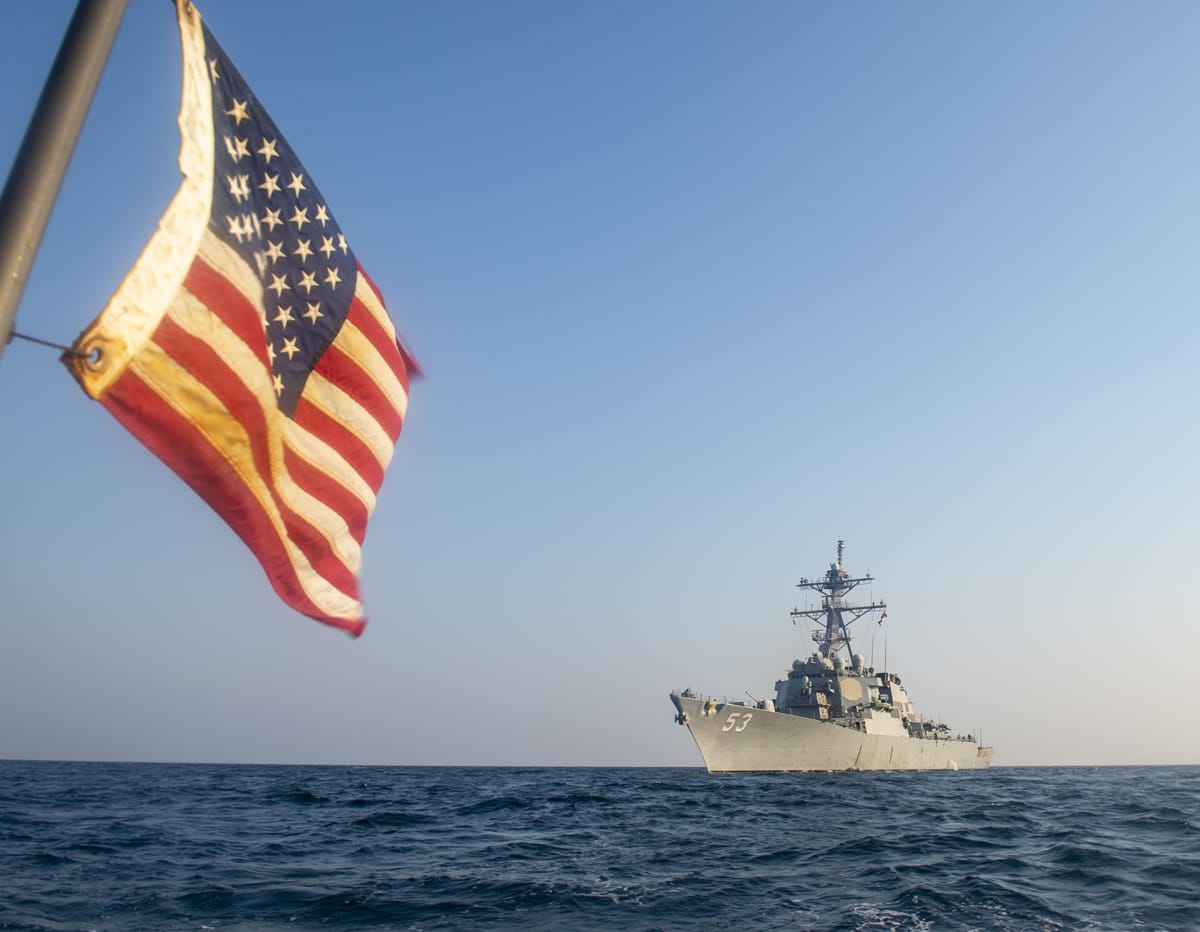The Freedom of Navigation Operations (FONOPs) program run by the US Department of Defense has become a symbol of China-US naval competition and of the West’s advocacy for a rules-based order. Operational assertions are thrust into the limelight whenever China responds to one. And barely any US statement goes by without reference to freedom of navigation and global norms.
That’s a problem. FONOPs were only ever meant to uphold narrow principles with select audiences in mind. Those principles uphold the right of all navies to operate in the world’s waters unimpeded. A core audience since the program was established in 1979 has been foreign governments that may dispute the US stance on those rights but at least had context for the debate. To them FONOPs are often an irritation, not a serious problem.
But that audience has expanded. Commentators, journalists and officials have more reason to monitor maritime developments because they’re so central to Indo‑Pacific security. They mightn’t have expertise in arcane aspects of international law. But their voices matter deeply in shaping their country’s attitude to the United States – especially in democracies.
Some of them will view FONOPs through an intuitive rather than legal lens. Warships can be imposing. Sailing close by uninvited can appear like attempted intimidation – especially if histories of colonialism and gunboat diplomacy are at play. FONOPs are easily perceived as the antithesis of the rules-based order that America seeks to uphold, muddying the distinction between its behaviour and China’s.
We’ve seen what happens when operational assertions occur without helpful messaging. In April 2021, a terse US Navy press release announced that the USS John Paul Jones “asserted navigational rights and freedoms … inside India’s exclusive economic zone, without requesting India’s prior consent,” adding that the operation challenged “India’s excessive maritime claims.”
India’s foreign policy community responded with nuance, and neither side allowed the incident to distract from higher priorities. But the statement prompted outcry from some commentators who seemed unaware that the United States had been conducting such operations for decades.
At least four unhelpful themes emerged publicly.
First, ordinary people – in any country – could be forgiven for not distinguishing between foreign navies operating in their EEZ or in territorial waters. Countries have sovereignty over the latter, not the former. But to laypeople, a foreign warship operating in either can sound like an affront.

Second, the global view of the United States doesn’t automatically translate locally. For Washington’s program to work, it must uphold the rules everywhere, not just where it’s convenient. But most countries are pragmatically focused on their immediate region. They don’t have the resources, reach and desire to sail the globe to underscore their right to do so. When America reaches out to touch their maritime zones from the other side of the world, it can appear targeted – not routine. It’s no surprise that some Indian commentators looked for political messaging behind the US navy’s statement; one speculated it may partly relate to American displeasure over India’s relationship with Russia.
Third, some reactions revealed an assumption that the United States reserves FONOPs for countries that aren’t its closest partners. Prominent Indian opposition figure Shashi Tharoor implied that America didn’t conduct FONOPs against countries such as Australia because they are formal allies – not because their maritime stances are largely aligned. More than one analyst told me that even if America could legally conduct FONOPs in India’s EEZ, its relationship with India meant that it shouldn’t. It should focus on China. Few seemed convinced that FONOPs were about rules rather than power.
Finally, the United States was accused of hypocrisy. This is familiar: Washington’s reticence to join the United Nations Convention on the Law of the Sea (UNCLOS) is often seen to undermine its credibility to uphold maritime rights. Further, one senior military officer from South Asia asked me: Could I imagine how America would react if China entered its maritime zones? It does, and with no objection.
The answer to some of this is straightforward: the United States needs a good website. Offerings such as the State Department’s Limits of the Seas site provide valuable legal analysis for specialists. But they don’t help laypeople demystify FONOPs, which for the United States are one of the most visible – and potentially provocative – means of upholding international law.
Government statements can assert the relevant principles, but still emphasise that the program doesn’t diminish America’s regard for its partners. And they can still pro-actively tackle common misperceptions about FONOPs. It wouldn’t hurt for America to more-consistently highlight when other countries exercise their navigation rights off its own coast, and to be clearer that that freedom of navigation rights exist beyond the UNCLOS framework. Supporting them without having joined the treaty isn’t as hypocritical as some assume.
Indo-Pacific states have good historic reasons to be cautious about external powers. Their perceptions of US foreign and strategic policy are shaped by their strong focus on practical issues – as well as diverse cultural assumptions about law’s role in strategy and national power. Advocating a rules-based order requires clarity about exactly what rules America is promoting – and a willingness to consider whether the message is landing with important audiences.
FONOPs should be about more than ticking legal boxes. They are an opportunity for America to persuade, not just assert.

